‘As a mother of a son with haemophilia it has always been a double-edged sword for me. On one side it feels unfair and unjust that we as a family have had to watch him with his challenges in life and the times that pain has been his enemy. However, like most of us I have always been so grateful for the medical care and the support we have in Australia.’
Leonie Demos, Reflections on Twinning with Myanmar

Every year on 17 April, World Haemophilia Day is recognised worldwide to increase awareness of haemophilia, von Willebrand disease and other inherited bleeding disorders.
This year the theme for World Haemophilia Day is Access for All. Here, in Australia we are grateful that our community has access to high quality treatment, but we recognise that many parts of the world do not have access to diagnosis, treatment and care. Working with the World Federation of Hemophilia (WFH), HFA and many Australian volunteers have joined WFH GAP and Twinning programs, where established and emerging haemophilia organisations and haemophilia treatment centres around the world share their knowledge and help to improve treatment and care.
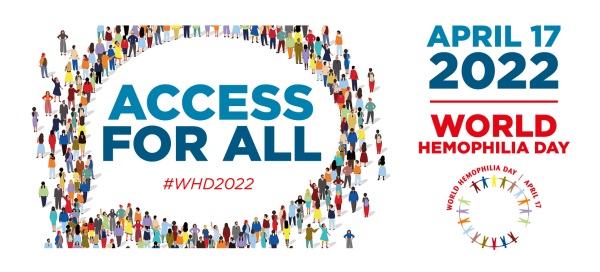
‘Our friends in Myanmar share a genetic disorder like us. They share a heart and passion to work together to support each other and provide support for the rough times they face. But they have great challenges every day in living with a bleeding disorder and much to do to achieve the level of diagnosis, hospital services and treatment they need to live well.’
Leonie Demos, Reflections on Twinning with Myanmar
Established more than 15 years ago, the WFH Twinning Program aims to improve haemophilia care in emerging countries through a formal, two-way partnership between two haemophilia organisations or treatment centres for a period of four years. Twinned organisations or haemophilia treatment centres work together and share information, resulting in a mutually beneficial partnership. It is a great way to transfer expertise, experience, skills, and resources.
HFA has supported many programs over the years and participated in the WFH Twinning Program and various committees that work to achieve the objectives of WFH. Recently HFA and Myanmar have been WFH twinning partners and we look forward to further work together.
The importance of Twinning and GAP programs can’t be understated, and in recent years with COVID and political unrest they are even more crucial to help raise awareness and bring assistance to these hard working but under resourced communities.
‘There might not be a lot of us, but we all share a lot of the same experiences and can help each other and continue to improve the situation locally within Australia and globally.’
Sam Duffield, Myanmar Twinning Visit
The stories that follow are a snapshot of Australian Twinning experiences over the years.
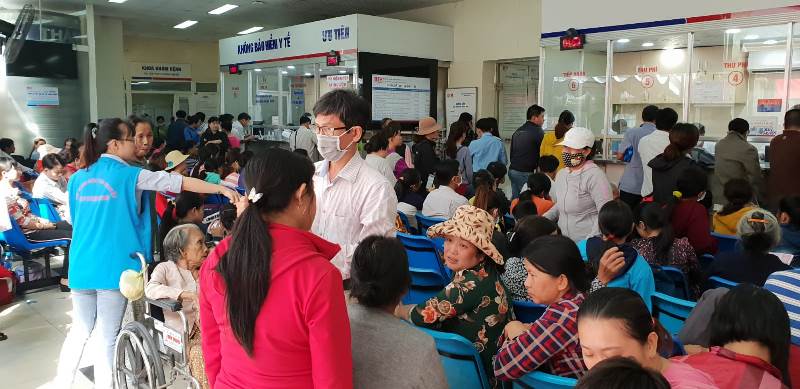
‘What could I bring to a country I don’t know, with resource needs that I can’t meet? I also wanted to think about how this trip could contribute to the service that I provide to my work here in Melbourne.’
Jane Portnoy, a Haemophilia Social Worker at the Ronald Sawers Haemophilia Centre, Alfred Health, in Melbourne, travelled to Vietnam with the Haemophilia Treatment Centre team from the Alfred.
‘The hospitals in Vietnam seem familiar yet also really different. There was no privacy, but there was a warmth in the rooms that I was lucky enough to visit. The team knew all about their patients and the treatment that they needed. Laughter and support were common and there was a lot of sharing of experiences.’
Jane wanted to better understand how social workers operated in Vietnam, and how this differed to Australia. She found social work to be an emerging concept in Vietnam, with few social workers trained to the role.
‘The Social Workers were keen to hear about psychological interventions, and are starting to realize that this work is valuable, and enables patients to recover faster, use less resources and feel better in themselves. They are also becoming aware of the particular impact of having haemophilia.’
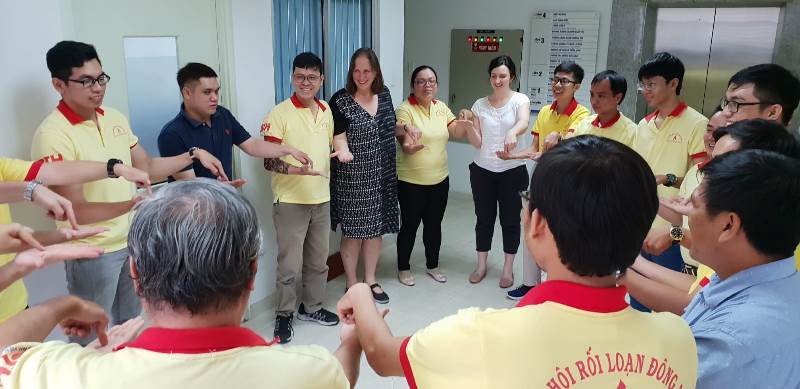
‘One of the most powerful aspects of my time in Vietnam was seeing the collaboration, and strong bonds between patients and their hospital teams.’
To learn more about Jane’s experience in Vietnam, read GAPping with Vietnam, originally featured in National Haemophilia, December 2018.
In 2012, the Ronald Sawers Haemophilia Centre at The Alfred hospital, Victoria, was twinned with the National Institute of Haematology and Blood Transfusion Centre in Hanoi, Vietnam. Abi Polus is Senior Clinical Physiotherapist – Haemophilia at The Alfred and visited to deliver a program on the importance of physiotherapy in haemophilia. She gave lectures on the role of physiotherapy and the need to be active and exercise, as well as running practical workshops.
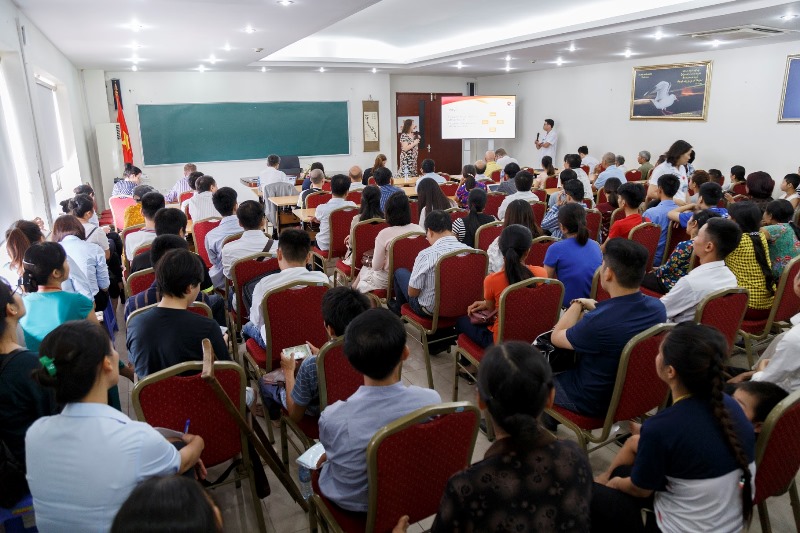
Abi found many patients had not had the opportunity to learn why haemophilia affects joints and muscles, and the connection between bleeds and musculoskeletal issues. A highlight of the trip was delivering a talk to patients where they asked question after question, demonstrating that they had understood her immediately and wanted to know more.
‘I found it immensely humbling and rewarding to be able to pass on my experiences in setting up a service and the knowledge I have acquired.’
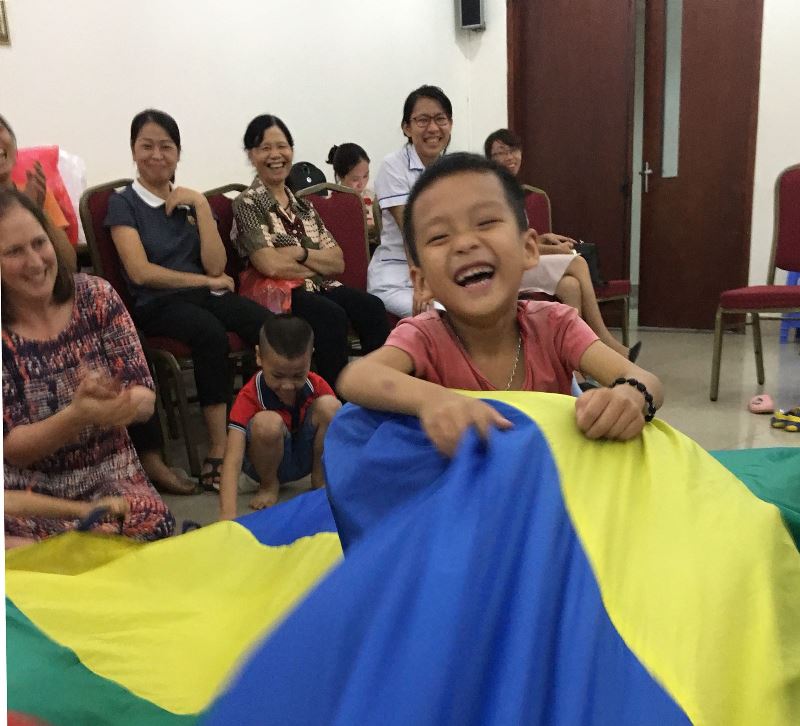
‘I asked one child if he had crutches? “I do”, he told me proudly. “Big ones. I am just waiting until I grow into them!”’
Abi’s story about her experience of Twinning in Vietnam, and how she was inspired by just how resourceful and hard working the Vietnamese doctors, physiotherapists and other members of the haemophilia team can be, was originally published in National Haemophilia, March 2015. Read Abi’s story here.
Treatment and care in Vietnam continues to progress. You may be interested to watch the 2021 video about the WFH Humanitarian Aid Program , Changing lives in Vietnam.
‘Sam and I felt our privilege in every way during our time in Myanmar. We also felt the hope and passion of a group of very special people who want to work together to improve treatment, care and peer support in their country. We have skills and experience to share and together we will work to do what we can knowing all our extended community is behind us.’
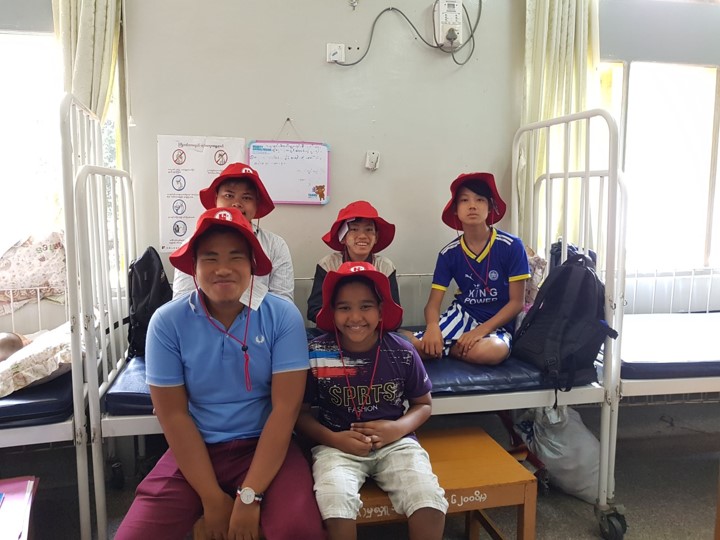
Sam Duffield and Leonie Demos represented HFA at the National Member Organisation Twinning Meeting with the Myanmar Haemophilia Patient Association (MHPA) in March 2019. Over the course of five days, Sam and Leonie were inspired by the dedication and passion of the bleeding disorders community in Myanmar.
‘The MHPA is working hard on behalf of those with haemophilia in order to provide improved access to information, treatment, hydrotherapy and opportunities. The doctors have also developed their expertise through participation in training programs where they could visit HTCs in the UK and learn more about diagnosis, treatment and care.’
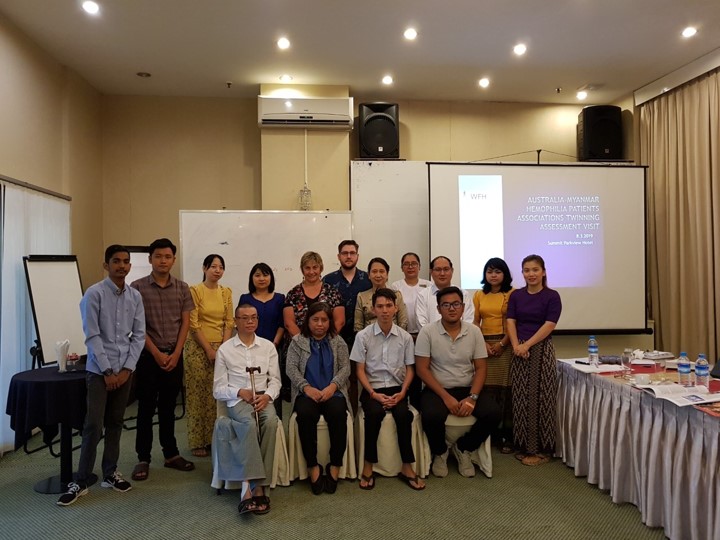
For Sam and Leonie, this was an opportunity to discover how the Myanmar group and HFA volunteers might work together to strengthen their advocacy skills so they can represent their needs to other organisations and the government to continue to improve the situation for people with haemophilia. It was also a reminder of how powerful the community can be to bring about change.
Sam Duffield is a Haemophilia Foundation Australia Youth Leader. Leonie Demos is a delegate on Haemophilia Foundation Australia Council and President, Haemophilia Foundation Victoria. Click here to read their full story, originally published in National Haemophilia September 2019.
Click here to learn more aobut the WFH Twinning Program
Click here to learn more about World Haemophilia Day
Haemophilia Foundation Australia acknowledges the Traditional Owners and Custodians of Country throughout Australia, the land, waters and community where we walk, live, meet and work. We pay our respects to Elders past and present and extend that respect to all Aboriginal and Torres Strait Islander peoples.
Sign up for the latest news, events and our free National Haemophilia magazine